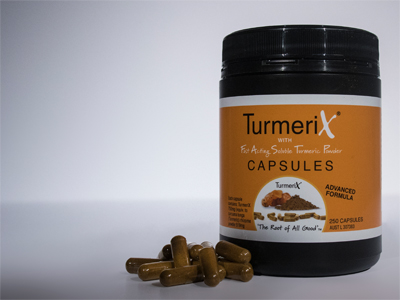Angela Cali Eczema Interview

Interview with Angela Cali , Naturopath
Naturopath Angela Cali graduated in 2003 with a Bachelor of Health Sciences in Naturopathy. She has been in clinical practice for over 13 years, helping people restore their health. Angela is a mother to 3 children and balances her working days with yoga and pilates.
She is a dedicated practitioner who strives to reach the underlining cause of your symptoms. Angela incorporates the latest scientific research when implementing treatment plans for her client's health.
Angela has a special interest in GUT health conditions such as, reflux, bloating, IBS (constipation, diarrhoea, SIBO) food intolerances and allergies. She is highly experienced in the field of debilitating anxiety and provides Holistic counselling for her clients. Angela equips her clients with tools and skills to manage their anxiety. Angela regularly hosts information seminars on various topics. Her approach is genuine, compassionate and motivating.
Question: What causes eczema?
Angela Cali: Commonly presents and predisposes the individual with a family history of allergic conditions, such as asthma and hayfever. These allergic conditions are due to an inflammatory response in the body. Other causes are digestive disorders, dysbiosis, nutritional deficiencies (EFA's), poor detoxification of liver, but not limited to.
Question: What are the symptoms associated with Eczema?
Angela Cali: Red, inflamed, dry skin commonly seen on the face, neck, elbows and knees. Itchiness and irritated skin lesions. Weepy lesions that can be prone to infection.
Question: Is there a specific cause for an individual's Eczema?
Angela Cali: Other considerations for causes of eczema are allergic reactions to environmental chemicals, irritants, fragrances, perfumes, heavy metals, excessive citrus fruit consumption, food intolerances/allergies and stress/anxiety.
Question: How is turmeric the magic ingredient for the management of eczema?
Angela Cali: Turmeric has been used traditionally in Western herbal medicine and Ayurvedic medicine as a natural anti-inflammatory.
Turmeric contains bioactive compounds, specifically Curcumin that has a potent anti-inflammatory action in the body. It acts to dampen the inflammatory response that presents in eczema conditions.
Question: Can you share your top tips for combating eczema and dry skin this winter?
Angela Cali: Avoid hot baths and showers! Whilst a nice hot shower may seem vital in these colder months, the hot water dries out your skin even more.
When you get out of the shower, try to pat your skin down gently instead of rubbing it with a towel.
Keep skin supple and moisturised with TurmeriX soap for it's anti-bacterial and anti-inflammatory effects. Gentle soaps like this are best to avoid further drying your skin out.
Thick moisturisers for sensitive and dry skin are also a must! Products like E45 are perfect for this! Turmerix hand cream is also a great option!
Taking a daily dosage of TurmeriX powder or capsules will modulate your immune response for the management of eczema.
Use a humidifier. Having the heater on dries the air in your house/apartment so a humidifier will add moisture back into the air.
Drink lots and lots of water to keep your entire body and skin hydrated!
 Question: How does the TurmeriX brand help in treating eczema?
Question: How does the TurmeriX brand help in treating eczema?
Angela Cali: TurmeriX is listed with the TGA as a whole food turmeric, proven to be effective in relieving inflammation, support healthy digestion, protective to the liver and provides anti-oxidant activity. All of which are majors causes of eczema.
Question: How should our skin care regime change as we move into Spring?
Angela Cali: Transition from heavy creams needed in winter to a lighter moisturiser to allow skin to breathe, whilst still hydrating and keeping the skin supple. Dry skin brushing over the body is a great exfoliant. It aids lymphatic flow and improves circulation for a healthy immune system and skin glow.
Question: Are there certain foods that aggravate eczema?
Angela Cali: Everyone has a different trigger or tolerance to the following foods below, but common aggravating foods are listed below: citrus fruits, cow's milk products, soy products, eggs, gluten, shellfish, fish and nuts. Also refined sugar products and excess red meats both create an acidic environment in the body and can contribute to overall inflammation in the body.
Interview by Brooke Hunter
She is a dedicated practitioner who strives to reach the underlining cause of your symptoms. Angela incorporates the latest scientific research when implementing treatment plans for her client's health.
Angela has a special interest in GUT health conditions such as, reflux, bloating, IBS (constipation, diarrhoea, SIBO) food intolerances and allergies. She is highly experienced in the field of debilitating anxiety and provides Holistic counselling for her clients. Angela equips her clients with tools and skills to manage their anxiety. Angela regularly hosts information seminars on various topics. Her approach is genuine, compassionate and motivating.
Question: What causes eczema?
Angela Cali: Commonly presents and predisposes the individual with a family history of allergic conditions, such as asthma and hayfever. These allergic conditions are due to an inflammatory response in the body. Other causes are digestive disorders, dysbiosis, nutritional deficiencies (EFA's), poor detoxification of liver, but not limited to.
Question: What are the symptoms associated with Eczema?
Angela Cali: Red, inflamed, dry skin commonly seen on the face, neck, elbows and knees. Itchiness and irritated skin lesions. Weepy lesions that can be prone to infection.
Question: Is there a specific cause for an individual's Eczema?
Angela Cali: Other considerations for causes of eczema are allergic reactions to environmental chemicals, irritants, fragrances, perfumes, heavy metals, excessive citrus fruit consumption, food intolerances/allergies and stress/anxiety.
Question: How is turmeric the magic ingredient for the management of eczema?
Angela Cali: Turmeric has been used traditionally in Western herbal medicine and Ayurvedic medicine as a natural anti-inflammatory.
Turmeric contains bioactive compounds, specifically Curcumin that has a potent anti-inflammatory action in the body. It acts to dampen the inflammatory response that presents in eczema conditions.
Question: Can you share your top tips for combating eczema and dry skin this winter?
Angela Cali: Avoid hot baths and showers! Whilst a nice hot shower may seem vital in these colder months, the hot water dries out your skin even more.
When you get out of the shower, try to pat your skin down gently instead of rubbing it with a towel.
Keep skin supple and moisturised with TurmeriX soap for it's anti-bacterial and anti-inflammatory effects. Gentle soaps like this are best to avoid further drying your skin out.
Thick moisturisers for sensitive and dry skin are also a must! Products like E45 are perfect for this! Turmerix hand cream is also a great option!
Taking a daily dosage of TurmeriX powder or capsules will modulate your immune response for the management of eczema.
Use a humidifier. Having the heater on dries the air in your house/apartment so a humidifier will add moisture back into the air.
Drink lots and lots of water to keep your entire body and skin hydrated!
 Question: How does the TurmeriX brand help in treating eczema?
Question: How does the TurmeriX brand help in treating eczema? Angela Cali: TurmeriX is listed with the TGA as a whole food turmeric, proven to be effective in relieving inflammation, support healthy digestion, protective to the liver and provides anti-oxidant activity. All of which are majors causes of eczema.
Question: How should our skin care regime change as we move into Spring?
Angela Cali: Transition from heavy creams needed in winter to a lighter moisturiser to allow skin to breathe, whilst still hydrating and keeping the skin supple. Dry skin brushing over the body is a great exfoliant. It aids lymphatic flow and improves circulation for a healthy immune system and skin glow.
Question: Are there certain foods that aggravate eczema?
Angela Cali: Everyone has a different trigger or tolerance to the following foods below, but common aggravating foods are listed below: citrus fruits, cow's milk products, soy products, eggs, gluten, shellfish, fish and nuts. Also refined sugar products and excess red meats both create an acidic environment in the body and can contribute to overall inflammation in the body.
Interview by Brooke Hunter
MORE



